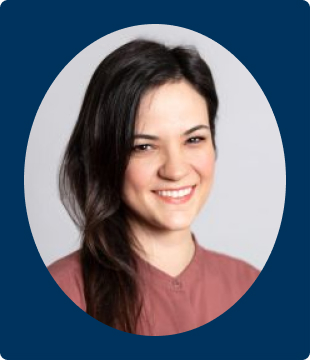We know far too well that language education holds many great benefits, such as brain development and the development of global citizenship skills, and that Hebrew education specifically holds immense potential for fostering a deep connection to Jewish heritage. However, we also know that in today’s digitally saturated world, where students’ attention is captured by endless stimulations and instant gratification, Hebrew education in many diaspora communities, including North America, has faced challenges in garnering widespread enthusiasm and participation. As educational leaders in today’s age of innovation, we have not only the opportunity, but the responsibility, to put our brains together and utilize our resources and familiarity with best practices to transform Hebrew instruction into the dynamic, meaningful, and culturally relevant experience that it can be. The road to achieving this is through a crystallized vision for Hebrew learning, that embraces language proficiency and content relevance, and that empowers the professionalization of Hebrew practitioners in the field.
As a first step to creating transformative Hebrew education, institutions that value Hebrew instruction must adopt the proficiency approach. The proficiency approach is a student-centered approach to language acquisition that moves beyond rote memorization of vocabulary, grammar rules and other language constructs, and instead focuses on developing students’ ability to communicate in the target language freely and effectively, in that order. It also suggests that the topics that students ought to learn in the target language must come handy in meaningful contexts, such as in real-life situations. While rote learning of Hebrew poetry or of Biblical verses is impressive to the sympathetic listener, each topic introduced to the learner must be able to answer this question: does it contribute to the learner functioning—listening, writing or speaking with attributed meaning—in the language?
Of course, instilling confidence and promoting relevance of the content taught for students are not new phenomena in education. They are extremely powerful tools, and it is time that we double-down on our investment in them when it comes to the field of Hebrew language acquisition. With the proficiency approach in mind, gone be the days of performance-driven regurgitation of spelling test lists and conjugation charts, and in enters a time of experimentation and positively reinforced trial and error in the target language. This approach equips students with the skills, and perhaps more importantly the confidence, needed to navigate the challenges of learning a new language, and is a must-have for any program that wishes to see graduates who not only learn Hebrew, but are also not afraid to use it comprehensively.
“… each topic introduced to the learner must be able to answer this question: does it contribute to the learner functioning—listening, writing or speaking with attributed meaning—in the language?”
The proficiency approach does not come without its challenges. One significant challenge is the recognizing the different “Hebrews” that exist (biblical, mishnaic, medieval and modern) and identifying which is most relevant to the institutional values and goals. A second is the conflict between the time invested in Hebrew instruction versus instilling knowledge of Jewish, and all other, content. Ultimately, every educational leader must make some tough choices on the road to proficiency, choices about what form of Hebrew they and the institution most value, as well as about the must-have knowledge versus language skills that it wishes learners to carry with them beyond the program’s completion. This is where educational leaders need to turn inwards to consider their values, and outwards to evaluate what will serve their specific community best. If there is one thing that the great minds of the first Mandel Educational Leadership cohort have taught me, it is that when you work methodologically, with great creativity and an even greater kavanah, your efforts will be well-spent.
Just as my institution has invested in me by allowing me to benefit from the plenty that the Mandel Institute has to offer, the significance in investing in the professionalization of teachers and other practitioners in the Hebrew education field cannot be overstated. Simply speaking a language does not make us experts in instructing it, just as owning an advanced calculator does not automatically make us great mathematicians. By empowering those who teach our communities Hebrew with the knowledge and skills necessary to implement best practices of the language proficiency model, we can foster a transformative learning environment for Hebrew learners that develops not only language learning, but communicative competence, cultural understanding, and critical thinking skills, all essential for effective language acquisition. Through investing in professional development programs and resources, educators can enhance their pedagogical approaches, staying abreast of current methodologies and strategies that optimize language learning outcomes.
“Through investing in professional development programs and resources, educators can enhance their pedagogical approaches, staying abreast of current methodologies and strategies that optimize language learning outcomes.”
Acknowledging the many benefits of language learning and of the proficiency model for language acquisition, connecting to and understanding the priorities of our community, and possessing clarity of vision for which of the Hebrews we value and how much time to invest teaching it, helps educational leaders to make informed decisions and establish a strong foundation for incorporating Hebrew into the important work that we do. And, working to empower our Hebrew teaching faculty to become experts in innovative approaches to language acquisition, will lead to a collaborative network of educators dedicated to enhancing Hebrew instruction, and through that, Jewish identity. By embracing this vision, we can cultivate an engaging and meaningful Hebrew learning experience that is relevant to the learner’s needs, interests, and aspirations, and ultimately foster a deeper appreciation and connection to the cultural context that Hebrew has had to offer to the Jewish people for over two millennia, even in today’s digital age.

